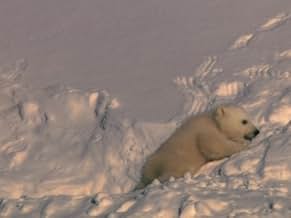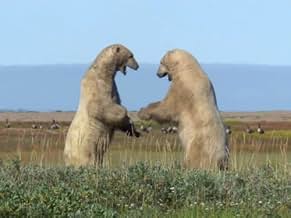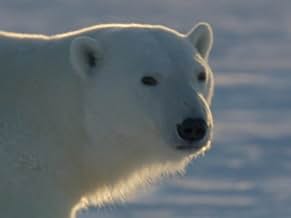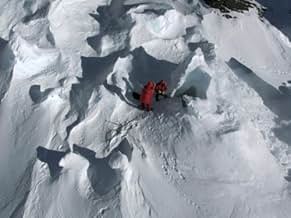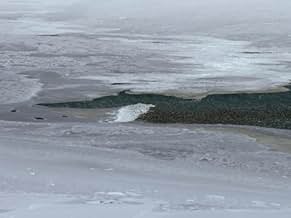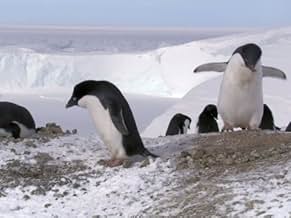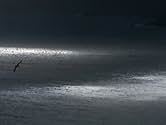La série documentaire se focalise sur la vie et l'environnement dans l'Arctique et l'Antarctique.La série documentaire se focalise sur la vie et l'environnement dans l'Arctique et l'Antarctique.La série documentaire se focalise sur la vie et l'environnement dans l'Arctique et l'Antarctique.
- A remporté 4 prix Primetime Emmy
- 13 victoires et 9 nominations au total
Parcourir les épisodes
Sommaire
Reviewers say 'Frozen Planet' is acclaimed for its breathtaking cinematography and David Attenborough's engaging narration. The series excels in detailing animal behavior and adaptation, offering both educational and emotional value. Behind-the-scenes segments enhance appreciation for the production team's efforts in extreme environments. However, some note repetitive content and a slight focus on human impact, though these are minor compared to the series' overall quality.
Avis en vedette
Despite how much he apparently dislikes the term "national treasure", that term really does sum up David Attenborough to a tee. He is such a great presenter (in his 90s and still sounds, and looks on a side note, great) and whenever a new series of his is aired they are often among the best the BBC has done in years.
Am a great fan of both 'Planet Earth' series and 'The Blue Planet' in particular of Attenborough's work. 'Frozen Planet' is another masterpiece and is on the same level as them. Expectations were high, expectations were met and went beyond that, 'Frozen Planet', along with 'Planet Earth II' transfixed, fascinated, moved and educated me more than any other documentary seen in a long time and is an example of how documentaries should be done. Like what was said for 'Planet Earth II', and how is felt about 'Planet Earth' and 'The Blue Planet', one forgets they're watching a documentary and instead feeling like they're watching art. As hyperbolic as this all sounds, to me and many others the acclaim is more than deserved and even with many fans and a high rating here 'Frozen Planet' is perhaps not praised enough.
'Frozen Planet', as to be expected, looks utterly amazing. It is gorgeously filmed, done in a completely fluid and natural, sometimes intimate (a great way of connecting even more with the animals), way and never looking static. In fact much of it is remarkably cinematic. The scenery and habitats are some of the most breath-taking personally seen anywhere, whether in visual media and real life, wildlife, underwater, cave and volcano landscapes are done in a way that will leave even not-so-devoted nature documentary viewers on a whole new level of speechless. How the Arctic and Atlantic surroundings and how they're populated look during each season also fascinates and illuminates, even the controversial climate change episode, and the behind the scenes stuff adds a touch of honesty and humanity, such as the getting trapped in the wind and filming the orcas (killer whales).
George Fenton's music score soars majestically, rousing the spirits while touching the soul. It not only complements the visuals but enhances them to a greater level. Some of my favourite work from him in fact, coming from someone who's liked a lot of what he's done.
Can't fault the narrative aspects in 'Frozen Planet' either. There are things already known to me, still delivered with a lot of freshness, but there was a lot that was quite an education and after watching the full series it honestly felt like the series taught me a lot (and no it's not just the Latin names for the animals), much more so than anything in my secondary school Geography class. "To the Ends of the Earth", "Spring" and "Winter" were especially good. Attenborough's narration helps quite significantly too, he clearly knows his stuff and knows what to say and how to say it. He delivers it with his usual richness, soft-spoken enthusiasm and sincerity, never talking down to the viewer and keeping them riveted and wanting to know more.
The animals themselves are a wonderful mix of the adorable (the penguins, have somewhat of a bias due to loving penguins to bits) and the dangerous (the wolf). There were some truly powerful moments, including the wolf and bison attack, that was unlike any other nature documentary captured attack there's ever been. Powerful in ways that are heart-wrenching and harrowing, lots of suspense and pathos in 'Frozen Planet'.
None of the episodes feel episodic or repetitive, or even feel like episodes. 'Frozen Planet' instead feels like a collection of six individual stories with real, complex emotions and conflicts and animal characters developed in a way a human character would in a film but does it better than several.
Overall, utterly mesmerising and will unfreeze the iciest of hearts. 10/10 Bethany Cox
Am a great fan of both 'Planet Earth' series and 'The Blue Planet' in particular of Attenborough's work. 'Frozen Planet' is another masterpiece and is on the same level as them. Expectations were high, expectations were met and went beyond that, 'Frozen Planet', along with 'Planet Earth II' transfixed, fascinated, moved and educated me more than any other documentary seen in a long time and is an example of how documentaries should be done. Like what was said for 'Planet Earth II', and how is felt about 'Planet Earth' and 'The Blue Planet', one forgets they're watching a documentary and instead feeling like they're watching art. As hyperbolic as this all sounds, to me and many others the acclaim is more than deserved and even with many fans and a high rating here 'Frozen Planet' is perhaps not praised enough.
'Frozen Planet', as to be expected, looks utterly amazing. It is gorgeously filmed, done in a completely fluid and natural, sometimes intimate (a great way of connecting even more with the animals), way and never looking static. In fact much of it is remarkably cinematic. The scenery and habitats are some of the most breath-taking personally seen anywhere, whether in visual media and real life, wildlife, underwater, cave and volcano landscapes are done in a way that will leave even not-so-devoted nature documentary viewers on a whole new level of speechless. How the Arctic and Atlantic surroundings and how they're populated look during each season also fascinates and illuminates, even the controversial climate change episode, and the behind the scenes stuff adds a touch of honesty and humanity, such as the getting trapped in the wind and filming the orcas (killer whales).
George Fenton's music score soars majestically, rousing the spirits while touching the soul. It not only complements the visuals but enhances them to a greater level. Some of my favourite work from him in fact, coming from someone who's liked a lot of what he's done.
Can't fault the narrative aspects in 'Frozen Planet' either. There are things already known to me, still delivered with a lot of freshness, but there was a lot that was quite an education and after watching the full series it honestly felt like the series taught me a lot (and no it's not just the Latin names for the animals), much more so than anything in my secondary school Geography class. "To the Ends of the Earth", "Spring" and "Winter" were especially good. Attenborough's narration helps quite significantly too, he clearly knows his stuff and knows what to say and how to say it. He delivers it with his usual richness, soft-spoken enthusiasm and sincerity, never talking down to the viewer and keeping them riveted and wanting to know more.
The animals themselves are a wonderful mix of the adorable (the penguins, have somewhat of a bias due to loving penguins to bits) and the dangerous (the wolf). There were some truly powerful moments, including the wolf and bison attack, that was unlike any other nature documentary captured attack there's ever been. Powerful in ways that are heart-wrenching and harrowing, lots of suspense and pathos in 'Frozen Planet'.
None of the episodes feel episodic or repetitive, or even feel like episodes. 'Frozen Planet' instead feels like a collection of six individual stories with real, complex emotions and conflicts and animal characters developed in a way a human character would in a film but does it better than several.
Overall, utterly mesmerising and will unfreeze the iciest of hearts. 10/10 Bethany Cox
Looking spritely as ever David Attenborough returned to the BBC with yet another brilliant documentary series, this time focusing on the seasons across the polar regions at either end of the earth. Spread over six parts, each season gets an episode followed by one on the lives of human in the regions and then an episode on how the regions have changed over time (and temperature). I'm not really a regular viewer of shows such as this, but I do come out for the big guns of the genre and the Attenborough/BBC names tend to be of the highest quality (plus the clip of the criminal penguin that was released as a promo convinced me to watch).
It is hard to fault Frozen Planet for what it does because it is technically impressive and stunningly filmed but yet has more than enough content and specifics to prevent the show being taken as just an excuse to show off your HD TV or have visual wallpaper for an hour (although having said that, it performs that task too and needs to be seen in HD). Although it covers a lot of ground, the show perfectly captures a sense of the extremes and of the remarkable forms of life that live in and around them, some we have seen before and some we have not and I found it as engaging to see familiar creatures as I did to learn of caterpillars that freeze completely solid only to thaw out and continue living when the ice retreats. As is to be expected, some of the presentation is a touch anthropomorphised but mostly the show is pretty honest about the chances of survival and is not afraid to show us the fates of creatures who are simply unlucky or misjudge their situation. Although one tries to watch it as a documentary it is hard not to feel something when you've just watched a baby bird survive a very rough landing on its first flight, only to be grabbed by a passing fox! The final two episodes are weaker by comparison because there is less of the animals and more of the human condition and bigger picture, but they are both fascinating. I came to the fifth episode not expecting much but the study of select communities did impress – not so much those that go there with money and technology, but those that hunt and live there; the shot of the man on a rope harvesting eggs on a cliff-face was a high point. The final episode just about avoids politics by mostly just showing things and leaving the rest to the viewer, but it was still an unusual part of the show compared to other series.
As always the filming is incredible and I do enjoy the little snippets at the end of each episode where we see how they were done and the frustrations and challenges of trying to get these great shots. The results are brilliant though, whether it is a camera dropped into a creature's burrowed hole, underwater shots of whales hunting as a pack or a hunt taken from far above in a helicopter; all of them are visually impressive and often breath-taking. The degree of access and intimacy is equally impressive and it is this that really makes the show as the viewer really feels part of an environment that the vast majority of us will never see or experience for ourselves. Over all this Attenborough's familiar tones inform and entertain – on top of his genre as ever but yet modest to the end.
Frozen Planet was a great series, really hard to fault as it delivers across the board for the vast majority of its run.
It is hard to fault Frozen Planet for what it does because it is technically impressive and stunningly filmed but yet has more than enough content and specifics to prevent the show being taken as just an excuse to show off your HD TV or have visual wallpaper for an hour (although having said that, it performs that task too and needs to be seen in HD). Although it covers a lot of ground, the show perfectly captures a sense of the extremes and of the remarkable forms of life that live in and around them, some we have seen before and some we have not and I found it as engaging to see familiar creatures as I did to learn of caterpillars that freeze completely solid only to thaw out and continue living when the ice retreats. As is to be expected, some of the presentation is a touch anthropomorphised but mostly the show is pretty honest about the chances of survival and is not afraid to show us the fates of creatures who are simply unlucky or misjudge their situation. Although one tries to watch it as a documentary it is hard not to feel something when you've just watched a baby bird survive a very rough landing on its first flight, only to be grabbed by a passing fox! The final two episodes are weaker by comparison because there is less of the animals and more of the human condition and bigger picture, but they are both fascinating. I came to the fifth episode not expecting much but the study of select communities did impress – not so much those that go there with money and technology, but those that hunt and live there; the shot of the man on a rope harvesting eggs on a cliff-face was a high point. The final episode just about avoids politics by mostly just showing things and leaving the rest to the viewer, but it was still an unusual part of the show compared to other series.
As always the filming is incredible and I do enjoy the little snippets at the end of each episode where we see how they were done and the frustrations and challenges of trying to get these great shots. The results are brilliant though, whether it is a camera dropped into a creature's burrowed hole, underwater shots of whales hunting as a pack or a hunt taken from far above in a helicopter; all of them are visually impressive and often breath-taking. The degree of access and intimacy is equally impressive and it is this that really makes the show as the viewer really feels part of an environment that the vast majority of us will never see or experience for ourselves. Over all this Attenborough's familiar tones inform and entertain – on top of his genre as ever but yet modest to the end.
Frozen Planet was a great series, really hard to fault as it delivers across the board for the vast majority of its run.
10fikamugg
To describe all the beautiful footage in this documentary is simply not possible. It's easily the best i have ever seen, even better than BBCs "planet earth" which was unique because of its big budget and extended production time (16M £, 5years). It's probable that production paid off in terms of skill and it certainly comes to show here in BBCs next effort when the mysteries and beauty of our planets frozen worlds is on the agenda.
More than anything else this production is a profound statement on how precious and unique our planet is and how immensely important it is that human impact on fragile ecosystems is kept to a minimum.
Richard Attenbourough is, as we all know by now, the perfect narrator. His deep interest and knowledge in natural history is apparent, adding a pleasant edge to this marvelous achievement.
More than anything else this production is a profound statement on how precious and unique our planet is and how immensely important it is that human impact on fragile ecosystems is kept to a minimum.
Richard Attenbourough is, as we all know by now, the perfect narrator. His deep interest and knowledge in natural history is apparent, adding a pleasant edge to this marvelous achievement.
Though I don't particularly enjoy animal documentaries, the second run of the BBC's "Frozen Planet" was on the Guardians list of top TV of last year, so I needed to give it a try. Despite the fact it's not a narrative-based show I still decided to watch the initial run from 2011 first. The effort involved is admirable, but as a documentary I found it to be a little repetitive.
The poles at either side of our planet are among the most inhospitable areas to exist. There are, however, various ecosystems that do survive there, with the changing seasons providing them with enough respite to either feed, breed or migrate as required. Polar Bears, Seals, Penguins and Orcas are amongst those species' films by the documentary, that uses underwater filming and time lapse photography to get unbelievably close to the animals.
This is probably the BBC at it's finest. An altruistic environmental documentary, beautifully shot in high definition and with a David Attenborough voiceover that can only be described as Iconic. The amount of personal sacrifice that goes into making a series like this is truly inspiring, with the "Freeze Frame" sections at the end of each episode giving us an insight into the conditions endured, and perils risked in order to get the footage. The footage is worth it though and even without the educational aspect just looking at what they captured would be enough. The final episode of the series is a change of pace, and focuses on human interaction in the polar regions, with both native people who live and hunt there, exploration bases and mining operations.
This might be a drawback caused by watching all the episodes in just a few days, rather than spacing them out one a week, as it would have originally been released, but there is quite a bit of repetition in the series. Some of this is endemic, Animals essentially eat, procreate, and die so if it's not doing one of these things, it's doing the other. More than that though, some specific bits of the series, I'm thinking specifically of the Orca's iceberg destruction technique and various bits of the penguin walks are shown more than once.
It doesn't derail the series which, like all of them, is a unique and fascinating insight into these ecosystems.
The poles at either side of our planet are among the most inhospitable areas to exist. There are, however, various ecosystems that do survive there, with the changing seasons providing them with enough respite to either feed, breed or migrate as required. Polar Bears, Seals, Penguins and Orcas are amongst those species' films by the documentary, that uses underwater filming and time lapse photography to get unbelievably close to the animals.
This is probably the BBC at it's finest. An altruistic environmental documentary, beautifully shot in high definition and with a David Attenborough voiceover that can only be described as Iconic. The amount of personal sacrifice that goes into making a series like this is truly inspiring, with the "Freeze Frame" sections at the end of each episode giving us an insight into the conditions endured, and perils risked in order to get the footage. The footage is worth it though and even without the educational aspect just looking at what they captured would be enough. The final episode of the series is a change of pace, and focuses on human interaction in the polar regions, with both native people who live and hunt there, exploration bases and mining operations.
This might be a drawback caused by watching all the episodes in just a few days, rather than spacing them out one a week, as it would have originally been released, but there is quite a bit of repetition in the series. Some of this is endemic, Animals essentially eat, procreate, and die so if it's not doing one of these things, it's doing the other. More than that though, some specific bits of the series, I'm thinking specifically of the Orca's iceberg destruction technique and various bits of the penguin walks are shown more than once.
It doesn't derail the series which, like all of them, is a unique and fascinating insight into these ecosystems.
I was fortunate enough to get the opportunity to work on the promotional campaign as an editor at Discovery Channel in 2011-2012, and is still one of my favorite projects to date. The only challenge I faced was trying to choose which visuals to use in the 60/30 second commercials, because they were all breath taking.
From start to finish, the production value, imagery and breathtaking landscapes are captured with perfection in this documentary series. I thoroughly enjoyed watching this series when I had to (work), and then watched it again when I wanted to (at home)!
Over all, well done!
Le saviez-vous
- Anecdotes44 cinematographers to shoot the whole documentary.
- ConnexionsEdited into Universum: Eisige Welten - Das Reich der Kälte im Bann des Klimas (2017)
Meilleurs choix
Connectez-vous pour évaluer et surveiller les recommandations personnalisées
- How many seasons does Frozen Planet have?Propulsé par Alexa
Détails
- Date de sortie
- Pays d’origine
- Site officiel
- Langues
- Aussi connu sous le nom de
- David Attenborough's Frozen Planet
- Lieux de tournage
- sociétés de production
- Consultez plus de crédits d'entreprise sur IMDbPro
- Durée1 heure
- Couleur
- Mixage
- Rapport de forme
- 16:9 HD
Contribuer à cette page
Suggérer une modification ou ajouter du contenu manquant

Lacune principale
What is the Brazilian Portuguese language plot outline for Frozen Planet (2011)?
Répondre





